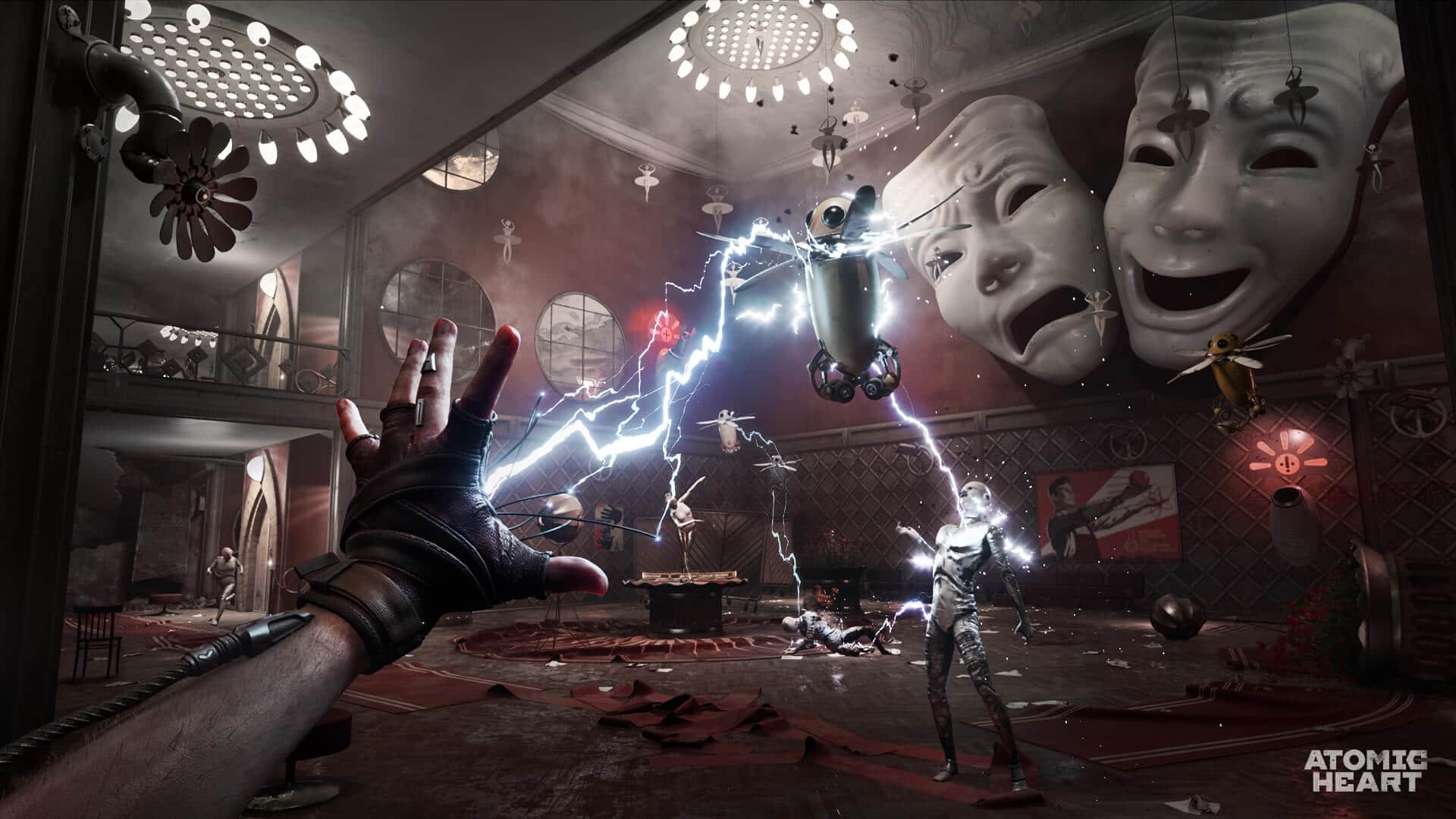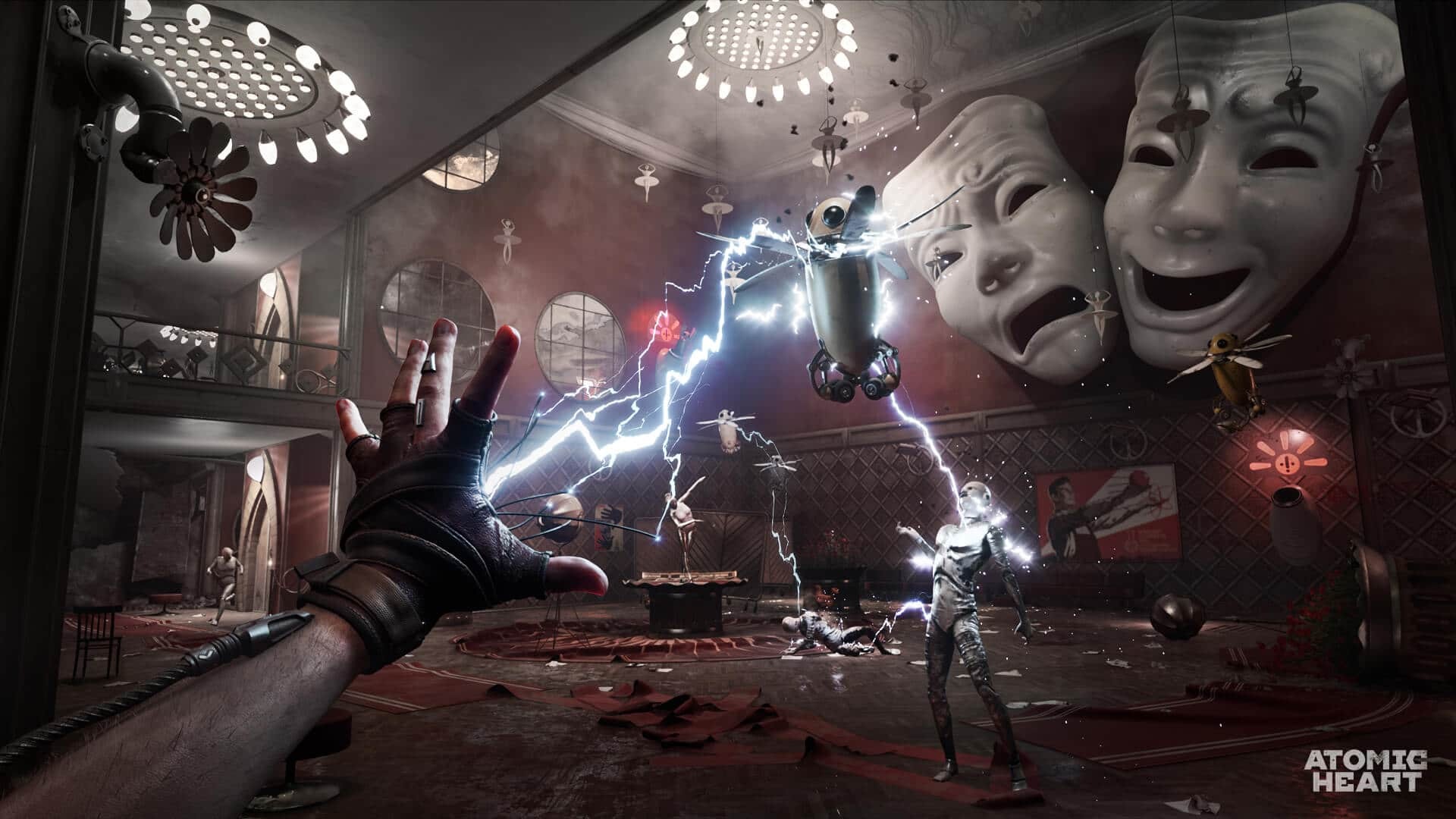Atomic Heart, the peculiar new sci-fi game developed by Mundfish, is associated with Russia, and has sparked quite a lot of controversy for this reason.

There's much to admire about Atomic Heart , a simple single-player game that focuses on crafting an intricate world for players to explore and uncover.
Atomic Heart draws inspiration from alternate-history shooters like BioShock and MachineGames' Wolfenstein series , taking players on a retrofuturistic adventure to a past where advanced technology has perverted reality, and robots have taken over. The game also borrows elements from Half-Life and Portal's puzzle-solving mechanics and attempts to incorporate the first-person stealth gameplay seen in Arkane's successful titles.
If you're looking for a review, here's one for you from the well-known streamer Asmongold:
Guilt and Games
The wordboycott is heard frequently in the gaming world these days. Just look at Hogwarts Legacy, which is facing a boycott due to its connection with J.K. Rowling. But we didn't expect to see Atomic Hearts caught up in this kind of scandal.
Is it possible that Atomic Heart is being unfairly accused? Or is there solid evidence?
There are allegations on the internet that Atomic Heart is Russian propaganda, as the game has Russian investors and is developed by a Russian studio that allegedly does not speak out against the Russian president and his war. Atomic Heart is set in an alternate reality in the 1950s, where the USSR discovered a new material that led to significant technological advancements and prosperity for all. However, the machines built with this material begin to turn against humanity, allegedly reprogrammed by the anti-Soviet resistance.
Players take on the role of a KGB agent named P-3, tasked with eliminating the adversaries and restoring peace. The game's storyline does not seem to contain overt political messaging related to current events.
However, the game's development studio has faced accusations, particularly after a Ukrainian YouTube user posted a video titled "Please, Don't Buy Atomic Heart."
The video makes three main accusations: the founders of Mundfish studio hid their identity and former connections, the studio's investors support Russian militarism, and the game itself is propaganda for the Soviet-Russian war. The video has gained significant traction, with 1.8 million views as of now.
It is up to individual consumers to decide whether to buy the game, taking into consideration the various allegations made against the game's development studio and investors.
What's The Truth About The Russia Connection?
Mundfish, the gaming studio behind Atomic Heart, is based in Cyprus and was founded in 2017. However, it has ties to Russia.
The founder, Robert Bagratuni, is Russian and studied aerophysics and space science in Moscow. Additionally, a 2019 article in a Russian medium mentions a studio in Moscow.
In a YouTube video, four of the founders are accused of having worked for Russian companies such as VKontakte or Newmedia Stars, but these accusations are not substantiated and should not be considered evidence of Russian propaganda.The studio claims to have employees "from all over the world," and connections to Russia are not mentioned. The game's composer, Mick Gordon, praised the studio's prioritization of "imagination and artistic freedom" but also donated his fee to the Red Cross to help victims in Ukraine.
However, the accusations against the studio's investors are more substantial. Mundfish's website lists Gaijin Entertainment, Gem Capital, and Tencent as investors. Gaijin was founded in Russia, is now based in Budapest, and is known for its free-to-play flight and tank simulation game, War Thunder. Gem Capital invests in various industries, including oil and gas, and its founder previously worked for Gazprom, which may indicate connections to the Russian government.
Guys, we have noted the questions surrounding where we, at Mundfish, stand. We want to assure you that Mundfish is a developer and studio with a global team focused on an innovative game and is undeniably a pro-peace organization against violence against people.
— @Mundfish #AtomicHeart (@mundfish) January 16, 2023
Furthermore, the game Atomic Heart is being distributed in Russia by VK Play, which is owned by the Russian technology company VK, formerly known as Mail.ru.
VK operates VKontakte, which is often referred to as the "Russian Facebook."
It's worth noting that Gazprom, a company with close ties to the Russian government, holds just over 50 percent stake in VK.
Considering this, the question of whether to boycott Atomic Heart may have already been answered for some.
Purchasing the game may inadvertently support Russian companies with loyalty to the state, although it's difficult to determine the exact extent of this.
No matter what other game calls for political discussion this year, be it Hogwarts Legacy, Atomic Heart or others, in the end it's always you who decides.
You are the community of players.






























